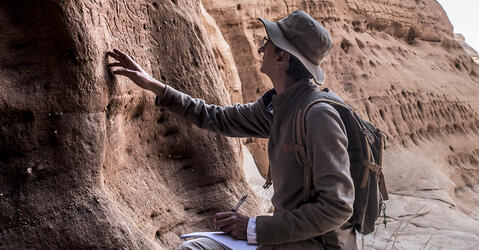You are here
Society
Imagining and preparing for the future in order to guide research and public policy is the very purpose of foresight. A perilous exercise, scientists point out. And one that requires dialogue between disciplines, along with solid models accounting for...
Article
12.02.2025
In 2015, the historic Paris Agreement, signed by 195 countries, sought to limit global warming to 2 °C. Ten years later, the results have yet to materialize, raising questions regarding the effectiveness of COP meetings, major climate gatherings whose...
Article
11.09.2025
The myth of Africa as a wild, enchanting continent conceals a reality of nature under glass orchestrated by Western experts, to the detriment of local populations. The historian Guillaume Blanc recounts this little-known story.
Article
10.20.2025
A previously unpublished sonnet by Cervantes, recently discovered in an account of Neapolitan festivals, reveals the exceptional socio-professional status of the author of "Don Quixote" in the Renaissance.
Article
10.15.2025
See also
Article
10.03.2025
The concept of an “energy transition” is misleading, states the CNRS science historian Jean-Baptiste Fressoz. He explains why coal and oil never replaced wood, and that the fight against climate...
Article
09.29.2025
Oil isn't the only treasure hidden in the Arabian desert. French-Saudi archaeological teams are gradually unearthing a hitherto unsuspected heritage, including urban development, languages,...
Article
09.18.2025
Forty-four years after the earliest cases of AIDS were identified, the historian Marion Aballéa retraces the social, economic, cultural, scientific and public health history of the first pandemic...
07.24.2025
Steven Spielberg’s "Jaws" is back in cinemas worldwide 50 years after its original release. The specialist Éric Clua talks about the negative image of sharks conveyed by the film and a new...
07.22.2025
Digital cemeteries, deadbots… Is the development of digital tools changing the way we cope with death and mourning, as depicted in David Cronenberg’s latest film "The Shrouds"?
07.05.2025
Researchers have shown that dogs had a place in the first agricultural societies of Central and South America more than 5,000 years ago. But the arrival of European settlers brought about a drastic...
Article
06.18.2025
Sign languages are languages like any other. A new platform called Sign-Hub documents their diversity around the world and shows the importance of learning them at an early age, as with any oral...
Article
05.28.2025
On 14 May, 2025, the Musée de la Musique in Paris unveiled a completely new presentation of the 9,000 items in its collections, highlighting the connections among the musical traditions of different...
04.21.2025
Prehistoric sites across France, such as the famous Chauvet Cave or L’Ile d’Yeu, are being closely monitored so as to understand how they are being endangered by climate change, and avoid the...











